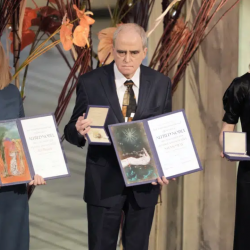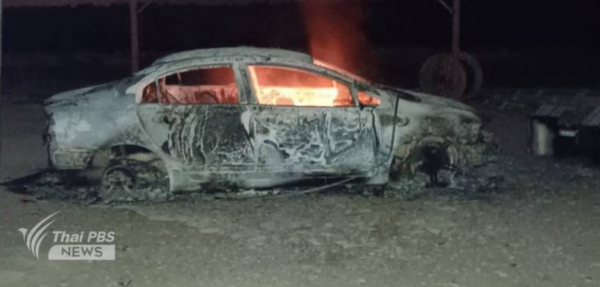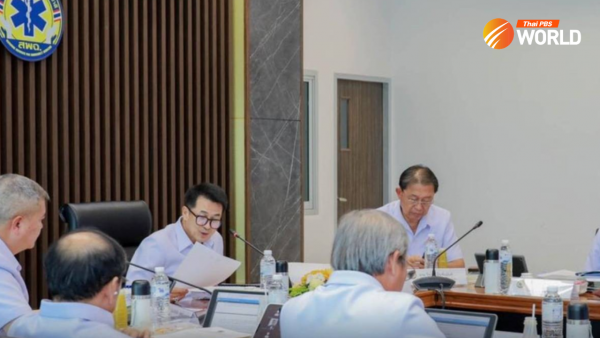Why Thailand’s new history class is causing national controversy

From the next academic year, schools across Thailand will teach history as a main subject in line with the policy of Prime Minister General Prayut Chan-o-cha. The move has prompted questions over whether the government is trying to cultivate a nationalistic and conservative mindset at a time when the world is focused on globalization and liberalism.
“It seems as if the government wants to force nationalism upon children,” prominent educator Prof Dr Sompong Jitradub said. “The move is unusual and goes against the principle of education and global trends.”
Critics’ view
Sompong said the globe was moving towards democracy, human rights, the environment and liberalism. But instead of riding these mega-trends, Thailand’s Education Ministry is trying hard to exert nationalism and conservatism.
“The Thai educational sector has apparently failed to adequately understand the global context. That’s why Thai education has never shone on the international stage,” he lamented.
Sompong said if Thailand really wanted to catch up with the world, it would overhaul its curriculum, especially when it comes to the English language.
Instead, the government’s plan to make history a core subject would drag Thai children – whose mindsets already resonate with global trends – back to conservatism, he added.
“The government is creating a trap of nationalism and ancestor worship,” he warned. “The excessive promotion of nationalism and respect for ancestors could foster biases against neighboring countries.”
Sompong also suspects the government has a hidden agenda in promoting history, believing it will replace the trend for liberalism in the new generation with conservative attitudes.
Government’s arguments
Since his years as the junta leader, Prayut has reiterated that Thais should love their nation, religion, and monarchy. Whenever he visits a school, his usual message is that it should focus on fostering love for the nation and the Royal Family.
The prime minister looked pleased as he toured an exhibition on “History Class” at Government House earlier this week. The Education Ministry held the exhibition to highlight its readiness to promote lessons on history – or at least its version of history – in schools.
“The Basic Education Commission has already approved the official separation of history from other subjects,” Education Minister Treenuch Thiengthong said.
She denied that the government was trying to force children to love their nation with this move. She said the content of the new history course will be modern and interesting. And even with history as a main subject, students will not be required to put in longer hours of study. Neither will the government have to allocate more budget, Treenuch said.
“The new content will fit well into the current economic, social and citizenship context,” she insisted.
The education minister said the new move will also make history more fun for students. And history lessons would not just foster love for the nation but also help children prepare for the future, she said.
“History taught in schools will present mistakes and success stories for students to learn from and apply.”
What will students learn?
Junior secondary students will attend 40 hours of history class each year, while senior secondary students will attend 80 hours of history over three years.
The Education Ministry has vowed to introduce an active learning approach for the new core subject. Learning formats will be varied. For example, museums, historical sites, and local-wisdom activities may be included to give students knowledge of history.
The ministry will also recruit more history teachers to support the policy. These teachers will use digital and modern technologies to monitor their students’ learning, provide advice, and encourage the application of knowledge learned in daily life. Clear indicators will also be laid down to avoid redundancy given that students will also study citizenship.
Nipat Artmit, director of the Chaiyaphum-based Sunthornwattana School, said he agreed with the ministry’s move because history deserved stronger emphasis.
“If it’s not the main subject, children tend to take it for granted. That’s why they are blind to the background of their homeland and the roots of Thainess,” he said.
He said his school had prepared integrative content for history class. For example, it will take students on educational trips to learning facilities and key temples. For instance, students will learn about the first governor of Chaiyaphum and more.
Why the fuss?
Speaking on condition of anonymity, a teacher at a state school said she could not understand the Education Ministry’s move because she felt the separation of history as a subject had already been implemented in practice.
“In recent years, we have already separated history from social studies. We devote one hour a week to history and two hours a week to social studies,” she said.
According to the social studies head at one secondary school, the separation has occurred in practice since HM Queen Sirikit – today known as the Queen Mother – mentioned the importance of history as a subject more than a decade ago.
Another teacher is convinced that politics is behind the government’s move to prioritize the teaching of history. But she doubts the government will get what it wants.
“Don’t forget that students also follow the news. They also have issues close to their hearts. They will not just listen to what teachers or adults say. They will ask questions and will analyze information based on their mindset,” said the teacher, speaking on condition of anonymity over professional concerns.
She said she would try to teach history by integrating current issues and promoting analytical thinking.
#RecommendHistoryBooktoTreenuch
Kunthida Rungruengkiat, a former party-list MP for the now-dissolved Future Forward Party, has been encouraging people to recommend history books to Treenuch via social media.
The former lawmaker has recommended “6 October Cham Mai Dai, Luem Mai Long” by Prof Thongchai Winichakul, who teaches the history of Southeast Asia and Thailand at the University of Wisconsin–Madison in the United States. His book addresses the October 6, 1976, massacre of anti-government protesters at Thammasat University in Bangkok.
Assoc Prof Dr Prajak Kongkirati, who teaches at Thammasat’s Faculty of Political Science, recommended three books: “A History of Thailand” by Chris Baker and university lecturer Pasuk Phongpaichit, “Ponlamueang Kab Sangkhom Prachathipatai” (Citizen & Democratic Society) by Dr Tanet Charoenmuang, who teaches at Chiang Mai University’s Faculty of Political Science and Public Administration, and “Human Rights” by Andrew Clapham of the Graduate Institute of International and Development Studies. This pocketbook has already been translated into Thai.
By Thai PBS World






